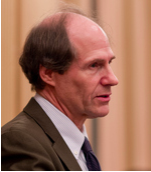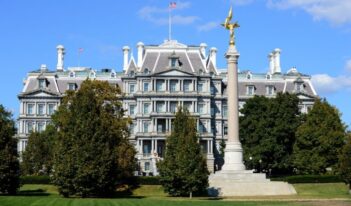
OIRA performs the role of information aggregator.
I want to conclude my discussion of the myths and realities of the Office of Information and Regulatory Affairs (OIRA) by saying something about costs and benefits – and about politics. Costs and benefits are really important. I went into OIRA being a fan of cost-benefit analysis. As with Bruce Springsteen, where the more you hear him the better he sounds, the same is true, I think, with cost-benefit analysis.
OIRA does focus a lot on costs and benefits, especially for economically significant rules. The Millian point is that while you usually shouldn’t have rules where the monetized benefits don’t justify the monetized costs, there may be something in the rule that makes it worthwhile if you consider the non-quantifiable benefits. For example, there’s a rule involving prison rape that the Department of Justice developed that, I think, is a real achievement. It’s going to reduce significantly the incidence of rape in America’s prisons. There isn’t a huge constituency for doing that, but there are a lot of human beings who aren’t going to suffer as they otherwise would as a result of the rule. The Department tried to do a full economic analysis: it had an analysis of the cost and tried to monetize the benefits. There’s a piece, I think, by a good law professor saying the cost-benefit analysis jumped the shark on this one. I don’t think so. I think that’s the right thing to do. You should monetize everything you can.
But the Department did say that this analysis inevitably excludes benefits that are not monetizable but still must be included in the analysis. These include the values of equity, human dignity, and fairness. Such non-quantifiable benefits will be received by people who receive proper treatment after an assault, and importantly by people aren’t subject to an assault in the first instance.
There are a bunch of other examples in the Obama Administration where non-quantifiable benefits were called out as justificatory, including the dignitary benefits of being able to use a bathroom if you’re in a wheelchair, even if we couldn’t monetize that humiliation reduction benefit for people.
The OIRA process, which involves careful focus on the agency’s initial estimates, might produce an alteration in the numbers. Sometimes, the numbers did shift as a result of the review process. There are a couple rules I’m thinking of where relevant groups wanted the rules to come out, and the companies on whom the costs would be imposed understood that the rules were justified, and, all things considered, they were the right rules to do, but they still took a while to finish. The reason they took a while wasn’t because anybody internally thought they were wrong, but because the numbers weren’t right and we didn’t want to go out with a rule, especially a very expensive rule such as these, when we didn’t have confidence in our numbers. We’re not going to tell the American people the costs are this and the benefits are that when the numbers may not be accurate. There was a lot of internal work done to try to make sure we actually understood the economic consequences of what we were doing, with the thought being that once we had the accurate numbers, maybe we’d go in a somewhat different direction. Maybe we’d still support the rule, but try making it more stringent or less stringent, or just different. And that really matters.
But most of the rules that OIRA sees aren’t economically significant in the sense that they don’t cost $100 million or more a year, and that means they don’t have to be subject to a full-dress cost-benefit analysis. For eighty percent or more of the rules, they’re just not that big economic deals, and the economics of the rule isn’t the central question.
What are the central questions? In a proposed rule, OIRA works really hard to make sure the agency offers to the public a bunch of alternatives and not just one. We really didn’t like it if the agency just said that there’s only a choice between inaction and the proposed rule. And the President of the United States said, in the mini-constitution that’s Executive Order 13563, that agencies should discuss alternatives — because they might learn from the process that an alternative that they were not proposing was actually better than the one that they proposed.
Another thing that OIRA focuses a lot of attention on is making sure that public comment is sought on a range of issues. You don’t want to freeze a preliminary judgment when the judgment might turn out to be erroneous. Sometimes an agency would think, “Look, we don’t want to take comments on this particular issue because it would suggest more openness than we actually feel.” That can be a good point if they would be seeking comment on something that is illegal: the agency shouldn’t do that. Or it could be a good point if they’re seeking comment on something that’s preposterous: they’d be signaling openness to something crazy. Or they could reasonably not want to ask for comment on something that, while not quite preposterous, is, in the end, really bad. Again, they’re not going to do it, and they don’t want to gear up a machinery of fighting over what is essentially a non-issue.
Nonetheless, the effort to seek public comment on as much as you reasonably can is something that OIRA takes really, really seriously.
Science is often a key issue in federal rulemaking. There’s been talk occasionally about OIRA interference with science. OIRA doesn’t perceive itself as authorized to do that, but I certainly did think that it was important to consult with Tom Frieden, the head of the Centers for Disease Control, and John Holdren, the President’s science advisor, to make sure the science was sound. We might say, “There’s a scientific judgment here, what does the CDC think about that?” Or, “What does the President’s science advisor think about that?”
To the extent that the OIRA process attracts unfavorable attention, it’s often because people think politics, in a pejorative sense, is playing a large role. That is simply not the case. The OIRA process is highly technical in its focus on law and inter-agency concerns, and it does not involve consideration of electoral ramifications. Sometimes there’s law, and even though OIRA isn’t the law office, it tries to make sure the lawyers get involved.
If the issues aren’t, strictly speaking, technical, but involve an issue of policy of the sort that gets elevated, that too is usually not a political issue. It’s a substantive judgment. True, there are parts of the White House that do focus on politics. How could it be otherwise? The White House Office of Legislative Affairs and the OMB’s Office of Legislative Affairs work closely with members of Congress. If they had a concern about a rule, I was perfectly happy to talk to them. In some cases they just say a rule is bad, which is no more useful than industry groups saying they don’t like a rule. But there were some cases where they said, “There’s a particular problem with this rule that means it’s going to hit our state hard. Is there a way that you can craft this rule so it doesn’t adversely affect our constituents in this way?” In more than one case that turned out to be actually reasonable and really helpful.
If the members of the public are concerned—be they left, right, or center on the political spectrum—then the White House Office of Communications and OMB Communications Office are in charge of relations with the media. If proposed and final rules need to be explained to the public, those offices develop relevant materials. But they don’t affect the content of the rules.
It is true that OIRA, like everybody else in the White House, works under the President. The Office of the Chief of Staff is very important, as it helps to oversee and coordinate all agency activity. Everybody works under the President and is subject to his supervision. I knew implementation of the Affordable Care Act was a big priority for the President, and we were going to implement the Affordable Care Act in accordance with his wishes. I knew also that economic growth was a great focus of his, and if we had a really expensive rule, it had better have a powerful justification. In a very real sense, you’re following the boss. But politics, as such, is not part of OIRA’s mission.
One thing that is a really important part of the mission of OIRA, and I hope this has been clarified, is that federal officials—most of them non-political—know a ton, and what OIRA is trying to do is to help ensure that what these officials know is incorporated in agency rulemaking. OIRA is really careful about making sure that regulatory due process, in the internal sense, is respected. People outside the government—and this was probably my biggest revelation on the job—are also adding, for countless rules, information that the experts inside the government don’t have yet, and OIRA sees as one of its crucial tasks the encouragement, receipt, and careful consideration of that information.
OIRA is believed by many—and I guess I believe this as well—to be promoting centralized direction of regulatory policy. That’s not false. OIRA does play a role in the process of White House oversight. But more important and more fundamental is OIRA’s role in ensuring the incorporation of decentralized knowledge. That’s what OIRA does every day. Notwithstanding its role as part of the process of White House oversight, a key part of what OIRA is doing, and part of the reason, I think, it’s endured for decades, is that it’s performing the modest—but absolutely indispensable—role of information aggregator.




